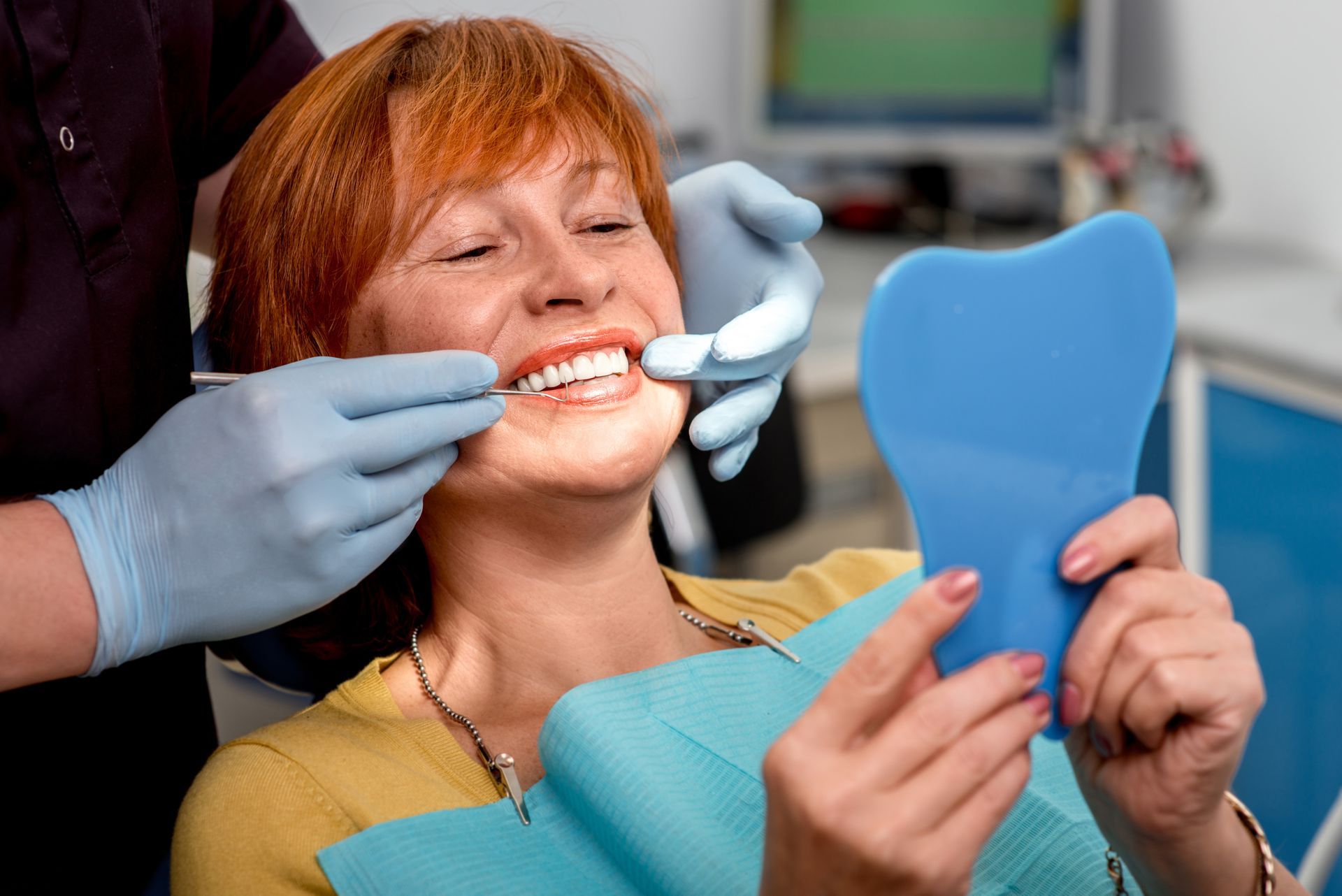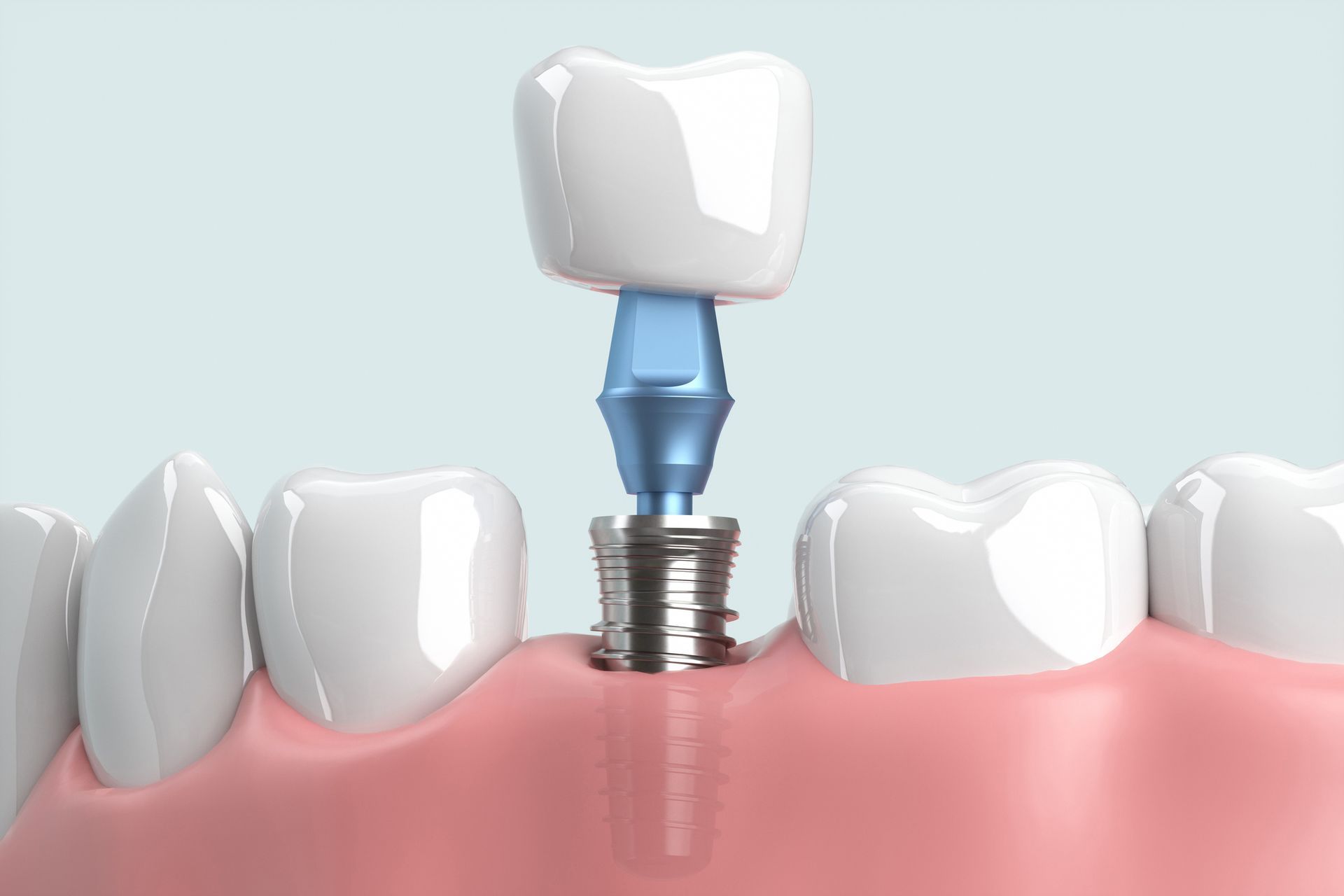5 Risk Factors for Gum and Periodontal Disease
- By Admin
- •
- 09 Aug, 2022

Explore five factors that put you at risk of gum disease and advanced gum illness, also called periodontal disease.
1. Medicinal Drugs
Some medicines reduce saliva flow, alter the plaque's pH, or directly contribute to gum disease. Saliva controls fungi and bacteria growth; hence a reduced flow increases your chances of infection. Then, if the plaque's pH does not neutralize quickly, harmful bacteria get an opportunity to deteriorate your gums.
Examples of medication that contribute to gum disease include:
- Antidepressants
- Antihistamines
- Antihypertensives
- Certain tranquilizers
- Oral contraceptives
- Immunosuppressive drugs
2. Cognitive Health
Stress compromises your immune system's response to gingival infections, and you cannot fight gum disease effectively. The duress may also lead to unhealthy behavior, such as tobacco use and poor eating behaviors. You are also less likely to stick to proper oral hygiene and become more prone to oral infections.
3. Tobacco Usage
Smoking makes your gums bleed less in the case of gingivitis. However, the lesser blood flow indicates an alteration in the gums' blood vessels and increases the rate of alveolar bone loss. Finally, if your gums fail to bleed and you do not have a gum disease diagnosis, the suppressed symptoms might make you miss the signs until the condition worsens.
4. Hormonal Changes in Women
Women undergo hormonal fluctuations during various life stages, such as puberty, pregnancy, and menopause. In matters of pregnancy, 57% of pregnant women suffer from pregnancy-associated gingivitis. The reason behind the condition is that sex hormones increase during pregnancy and contribute to bone loss around the teeth.
Whereas most imbalances happen naturally, oral birth control pills contribute to the fluctuation. For instance, some contraceptives contain and add progesterone to a woman's body, hence an exaggerated reaction to plaque toxins. Women who use oral contraceptives for a long time can get periodontal deterioration and gingival inflammation.
5. Genetics and Familial Patterns
The IL-1 genotype increases gum disease in adults. Therefore, if the gene runs in your family, you are at a higher risk of gum disease. The appearance of the genetics-induced gum disease depends on the illness' form. Aggressive gum disease could occur when you are below 30, but chronic periodontal illness appears after 30 years of age.
Your family provides background and influences various aspects of your lifestyle that could increase your risk of gum disease. For example, you are at a higher risk if you have lived with a family with less-than-healthy behavior, such as poor oral hygiene. Such an environment could also increase the chances of bacterial transmission from infected to healthy parties.
Proper oral hygiene, good nutrition, and overall body care reduce some of the risk factors discussed above. Guided dental care provides the ideal safety measures based on your condition. Therefore, you will benefit more if you have a reliable dentist to walk with you. If you want excellent medical care for gum disease, do not hesitate to contact Bradley Piotrowski, DDS, MSD, LLC.
AREAS WE SERVE
- Alva
- Ave Maria, Florida
- Bonita Springs, Florida
- Cape Coral, Florida
- Estero, Florida
- Fort Myers Beach, Florida
- Goodland, Florida
- Lehigh Acres
- Lely
- Marco Island, Florida
- Naples, Florida
- Saint James City, Florida
- Sanibel Island, Florida
- Vanderbilt Beach, Florida
AREAS WE SERVE
- Alva
- Fort Myers Beach, Florida
- Naples, Florida
- Ave Maria, Florida
- Goodland, Florida
- Saint James City, Florida
- Bonita Springs, Florida
- Lehigh Acres
- Sanibel Island, Florida
- Cape Coral, Florida
- Lely
- Vanderbilt Beach, Florida
- Estero, Florida
- Marco Island, Florida
This web site is not designed to, and does not, provide medical advice. all content ("content"), including text, graphics, images and information available on or through this web site are for general informational purposes only.
The content is not intended to be a substitute for professional medical advice, diagnosis or treatment. Never disregard professional medical advice, or delay in seeking it, because of something you have read on this web site. Never rely on information on this web site in place of seeking professional medical advice.
Bradley Piotrowski, DDS, MSD, LLC is not responsible or liable for any advice, course of treatment, diagnosis or any other information, services or products that you obtain through this site. You are encouraged to confer with your doctor with regard to information contained on or through this web site. After reading articles or other content from this web site, you are encouraged to review the information carefully with your professional healthcare provider.
CONTACT INFORMATION
Address: 1044 Castello Drive, Suite 202, Naples, FL 34103
Phone:
(239) 263-6003
Email: drbradpiotrowski@gmail.com
Business Hours:
- Mon - Thu
- -
- Friday
- Appointment Only
- Sat - Sun
- Closed













